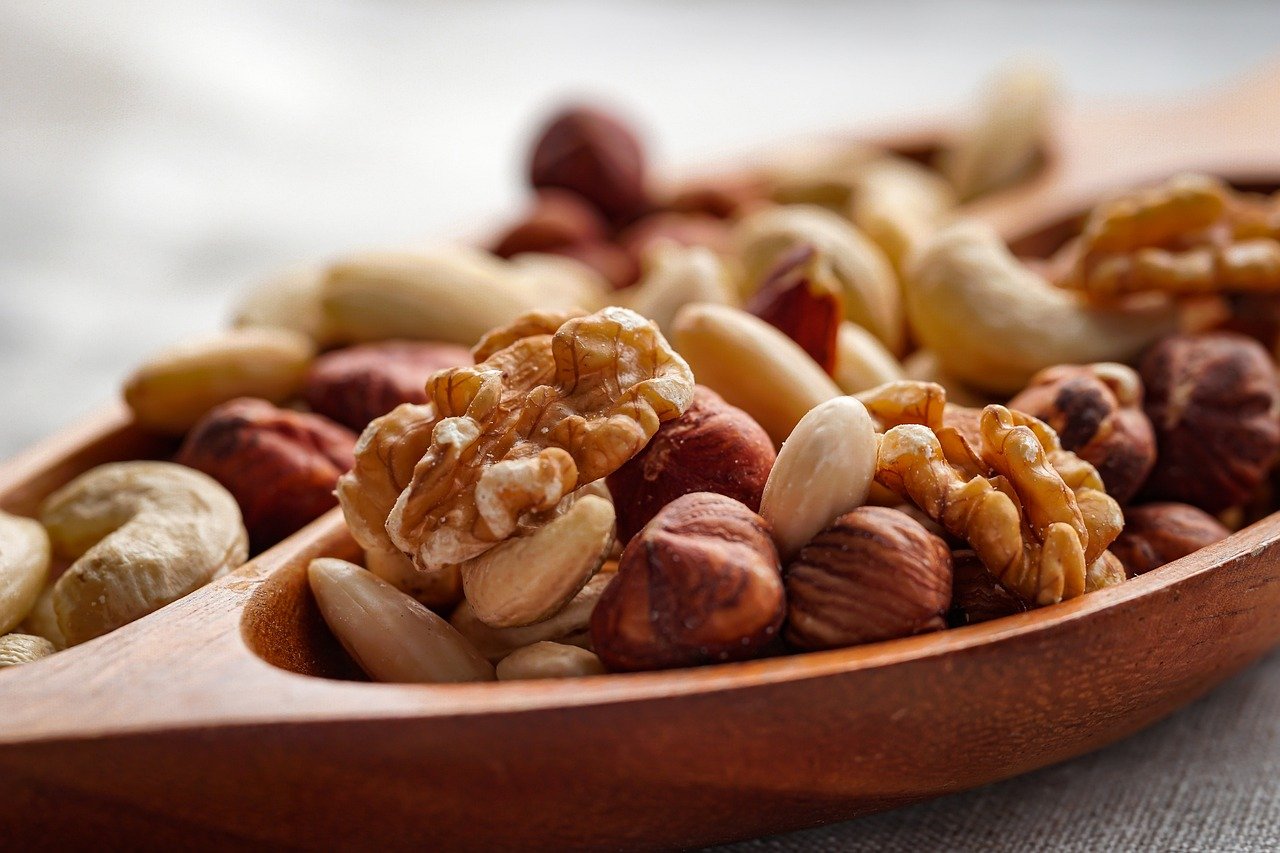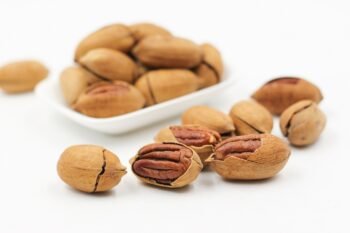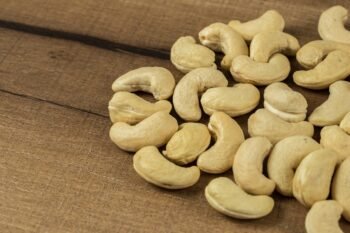Cashews are one of the most popular and delicious nuts consumed worldwide. These kidney-shaped nuts are not just a tasty snack but also packed with essential nutrients that contribute to overall health. Cashews come from the cashew tree (Anacardium occidentale), which is native to Brazil but is now grown in many tropical regions, including India, Vietnam, and Africa. In this blog, we will explore the numerous health benefits of cashews and understand why they should be a part of our daily diet.
Nutritional Profile of Cashews
Cashews are rich in healthy fats, proteins, vitamins, and minerals that support various bodily functions. Below is the nutritional breakdown of cashews per 100 grams:
- Calories: 553 kcal
- Protein: 18.22 g
- Fat: 43.85 g (mostly heart-healthy monounsaturated and polyunsaturated fats)
- Carbohydrates: 30.19 g
- Fiber: 3.3 g
- Calcium: 37 mg
- Magnesium: 292 mg
- Phosphorus: 593 mg
- Iron: 6.68 mg
- Zinc: 5.78 mg
- Vitamin K: 34.1 mcg
- Vitamin B6: 0.417 mg
Cashews are a powerhouse of essential nutrients, making them an ideal food for people of all ages. Let’s explore their incredible health benefits.
1. Supports Heart Health
Cashews contain heart-friendly monounsaturated and polyunsaturated fats, which help reduce bad cholesterol (LDL) and increase good cholesterol (HDL). This, in turn, reduces the risk of cardiovascular diseases like heart attacks and strokes. The presence of magnesium in cashews also helps regulate blood pressure and prevents hypertension.
2. Aids in Weight Management
Despite their high-calorie content, cashews can actually aid in weight management. The healthy fats and proteins in cashews help keep you full for longer, reducing the chances of overeating. They also promote fat metabolism and prevent unhealthy weight gain when consumed in moderation.
3. Enhances Brain Function
Cashews are packed with essential nutrients like magnesium, iron, and zinc, which play a crucial role in brain function. They help improve cognitive abilities, memory, and overall mental well-being. The presence of antioxidants in cashews also protects brain cells from oxidative stress, reducing the risk of neurodegenerative diseases like Alzheimer’s and Parkinson’s.
4. Promotes Strong Bones
Cashews are an excellent source of magnesium, calcium, and phosphorus, which are essential for maintaining strong bones. Regular consumption of cashews helps prevent bone-related disorders like osteoporosis and keeps joints healthy.
5. Boosts Immunity
Cashews are rich in zinc and antioxidants, which help strengthen the immune system. Zinc plays a vital role in the production of immune cells and helps fight off infections. The antioxidants in cashews also protect the body from oxidative stress and inflammation.
6. Good for Eye Health
Cashews contain lutein and zeaxanthin, two powerful antioxidants that help protect the eyes from harmful blue light and UV rays. Regular consumption of cashews can reduce the risk of age-related macular degeneration (AMD) and cataracts.
7. Helps Control Blood Sugar Levels
Cashews have a low glycemic index and contain beneficial compounds that help regulate blood sugar levels. The healthy fats, fiber, and magnesium in cashews improve insulin sensitivity, making them a great addition to the diet of people with diabetes.
8. Improves Digestion
Cashews are a good source of dietary fiber, which promotes healthy digestion and prevents constipation. The presence of prebiotics in cashews also supports gut health by feeding beneficial gut bacteria.
9. Maintains Healthy Skin and Hair
Cashews are loaded with copper and antioxidants, which help promote glowing skin and healthy hair. Copper plays a significant role in the production of melanin, the pigment responsible for skin and hair color. The presence of healthy fats in cashews also keeps the skin hydrated and prevents premature aging.
10. Reduces Stress and Anxiety
Cashews contain an amino acid called tryptophan, which helps produce serotonin, a neurotransmitter that regulates mood. Eating cashews can help reduce stress, anxiety, and symptoms of depression.
How to Include Cashews in Your Diet
There are multiple ways to enjoy cashews and incorporate them into your daily diet:
- Raw or Roasted: Enjoy cashews as a quick and nutritious snack.
- Cashew Butter: Use it as a spread on toast or mix it into smoothies.
- Cashew Milk: A great dairy-free alternative for vegans.
- Cooking and Baking: Use cashews in curries, stir-fries, desserts, and energy bars.
- Trail Mixes: Combine cashews with other nuts, dried fruits, and seeds for a healthy snack.
Conclusion
Cashews are a nutrient-dense superfood that offers numerous health benefits, from improving heart health and brain function to supporting digestion and skin health. Including cashews in your daily diet in moderation can significantly enhance your overall well-being. However, it’s important to consume them in controlled portions, as excessive intake can lead to weight gain due to their high-calorie content.
So, make cashews a part of your diet today and enjoy their incredible benefits











